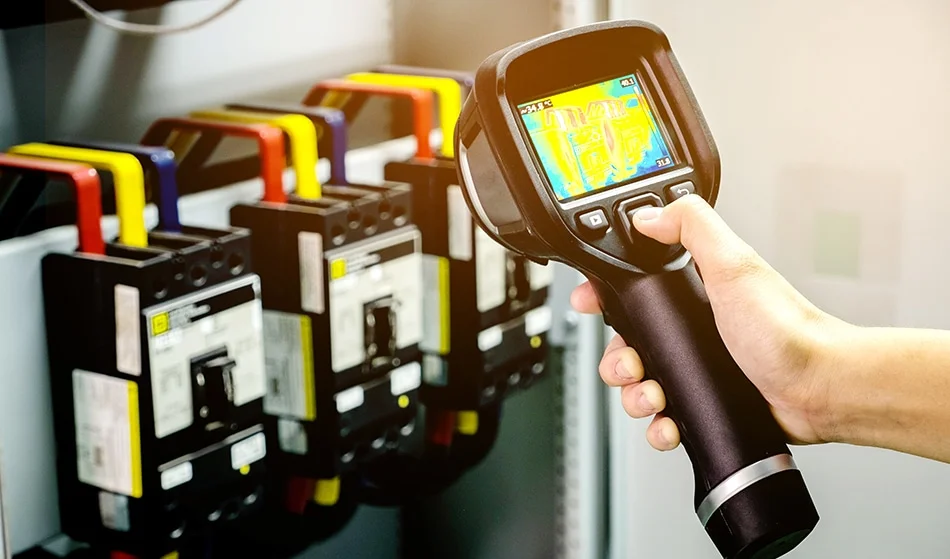Understanding IR Sensors: Applications and Benefits

Understanding IR Sensors: Applications and Benefits
Infrared (IR) sensors are among the most versatile and widely used devices in today’s technology-driven world. Their ability to detect and measure infrared radiation—a form of electromagnetic energy—makes them integral to various industries, ranging from electronics and healthcare to automotive and security systems. In this blog, we will explore the fundamentals of IR sensors, their types, applications, and the benefits they bring to modern technology.
Contents
What Are IR Sensors?
IR sensors are electronic devices that emit or detect infrared radiation to sense objects or changes in their surroundings. They operate in the infrared spectrum, which ranges from 700 nanometers (nm) to 1 millimeter (mm). These sensors can be broadly categorized into two types:
- Active IR Sensors: These sensors emit infrared light and detect reflections from objects. They are typically used in proximity sensing and obstacle detection applications.
- Passive IR Sensors (PIR): These sensors do not emit any radiation. Instead, they detect the infrared radiation naturally emitted by objects, such as body heat. PIR sensors are commonly used in motion detection systems.
Types of IR Sensors
IR sensors can be further classified based on their functionality:
- Thermal IR Sensors: These sensors detect heat energy and do not require light to function. They are widely used in thermal imaging cameras and temperature measurement devices.
- Photonic IR Sensors: These sensors respond to infrared light by producing an electrical signal. They are highly sensitive and are used in remote control devices, optical communication systems, and spectrometry.
- IR Proximity Sensors: These sensors measure the distance of an object by analyzing the reflected IR light. They are essential in robotics, smartphones, and automotive parking systems.
- IR Gas Sensors: These sensors measure the concentration of gases by analyzing how they absorb infrared light at specific wavelengths. They are commonly used in industrial safety and environmental monitoring.
Applications of IR Sensors
The diverse applications of IR sensors highlight their significance across multiple industries:
1. Consumer Electronics
- Remote Controls: IR sensors are integral to remote controls used for televisions, air conditioners, and other appliances.
- Touchless Interfaces: They enable gesture-based controls in devices like smartphones and gaming consoles.
2. Security and Surveillance
- Motion Detection: PIR sensors are widely used in alarm systems and security cameras to detect unauthorized movement.
- Night Vision: Thermal IR sensors are used in night vision equipment for surveillance and military operations.
3. Automotive Industry
- Obstacle Detection: IR proximity sensors assist in parking and collision avoidance systems.
- Driver Monitoring: IR cameras monitor driver attentiveness and detect fatigue or distraction.
4. Healthcare
- Temperature Measurement: Infrared thermometers provide quick and non-invasive body temperature readings.
- Medical Imaging: IR sensors are used in imaging devices to detect and monitor various health conditions.
5. Industrial Automation
- Quality Control: IR sensors detect defects or inconsistencies in manufacturing processes.
- Gas Detection: IR gas sensors ensure safety by identifying hazardous gas leaks.
6. Environmental Monitoring
- Wildlife Observation: IR cameras are used to study nocturnal animals without disturbing their habitat.
- Climate Studies: IR sensors measure radiation levels for weather forecasting and climate research.
Benefits of IR Sensors
IR sensors bring numerous advantages, making them indispensable in various fields:
- Non-Contact Operation: IR sensors can detect objects and measure temperature without physical contact, ensuring hygienic and damage-free operation.
- High Sensitivity: They offer precise detection of even minute changes in temperature, motion, or gas concentrations.
- Energy Efficiency: IR sensors consume minimal power, making them suitable for battery-operated devices and energy-efficient systems.
- Cost-Effectiveness: Many IR sensors are affordable, enabling widespread adoption in consumer and industrial applications.
- Reliability: IR sensors are highly reliable in diverse environmental conditions, including darkness and adverse weather.
- Compact Size: Their small form factor allows integration into compact devices and systems without compromising functionality.
Future Trends in IR Sensor Technology
The advancement of IR sensor technology promises exciting innovations in the near future. Some emerging trends include:
- Integration with AI: AI-driven IR sensors can analyze patterns for more accurate detection and decision-making.
- Enhanced Sensitivity: Research is ongoing to develop sensors with higher accuracy and lower noise levels.
- Wearable Applications: IR sensors are increasingly being integrated into wearable devices for health monitoring and fitness tracking.
- Smart Home Devices: IR sensors are becoming key components in home automation systems for lighting, security, and climate control.
Conclusion
Infrared sensors are pivotal to modern technology, bridging the gap between the physical and digital worlds. Their diverse applications, combined with the numerous benefits they offer, make them a cornerstone of innovation. As IR sensor technology continues to evolve, it will unlock new possibilities and reshape industries, ensuring a smarter and more efficient future.
Whether you are a tech enthusiast, a professional, or simply curious about the workings of modern devices, understanding IR sensors provides valuable insights into the technology that surrounds us.
